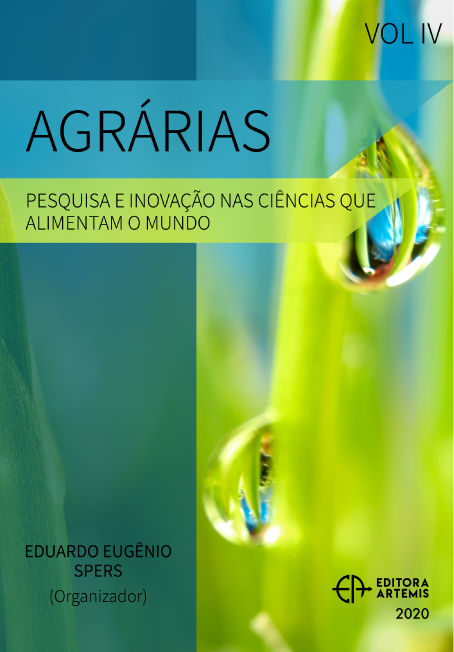
RIZOBACTÉRIA KLUYVERA ASCORBATA: UMA NOVA ALIADA PARA O MANEJO DE PRAGAS AGRÍCOLAS
Com a crescente demanda por tecnologia no setor agrícola e adoção de produtos químicos para o controle de pragas, o controle biológico participa, nesse contexto, como alternativa eficaz e sustentável. O objetivo deste trabalho foi avaliar o efeito da aplicação de Kluyvera acorbata, isolado EN4, no desenvolvimento e mortalidade de Chrysodeixis includens, lagarta falsa medideira. O experimento foi desenvolvido no laboratório de Entomologia do Instituto Federal do Triângulo Mineiro – Campus Uberaba, sob temperatura de 25±2oC, umidade relativa de 70±10% e fotofase de 12h. O delineamento experimental utilizado foi inteiramente casualizado com 5 repetições e 5 tratamentos, conforme descrito a seguir. Tratamento 1 – Incorporação da suspensão bacteriana à dieta artificial; tratamento 2 – Imersão de cubos de dieta de 1 cm3 na suspensão; tratamento 3 – aplicação superficial da suspensão sobre os cubos de dieta (overlay), por pulverização com aerógrafo acoplado a bomba de vácuo calibrada a uma pressão de de 0,3650Kgf/cm2, sob capela de exaustão; tratamento 4 – folha de planta oriunda de semente tratada com suspensão bacteriana e; tratamento 5 - Testemunha (sem adição de suspensão bacteriana). Constatou-se que não houve diferença estatística dentre os tratamentos e variáveis analisadas, exceto no tratamento 5 para formação de adultos, onde indica-se que, estatisticamente, os adultos mais bem formados são aqueles que não receberam dose alguma do isolado EN4.
RIZOBACTÉRIA KLUYVERA ASCORBATA: UMA NOVA ALIADA PARA O MANEJO DE PRAGAS AGRÍCOLAS
-
DOI: 10.37572/EdArt_25531122010
-
Palavras-chave: Controle biológico, tratamento de sementes, falsa-medideira.
-
Keywords: Biological control, seed treatment, soybean looper.
-
Abstract:
With the growing demand for technology in the agricultural sector and the adoption of chemical products for pest control, biological control participates in this context as an effective and sustainable alternative. The objective of this work was to evaluate the effect of the application of Kluyvera acorbata, isolated EN4, on the development and mortality of Chrysodeixis includens, false moth caterpillar. The experiment was carried out in the laboratory of Entomology of the Federal Institute of the Triângulo Mineiro - Uberaba Campus, at a temperature of 25 ± 2ºC, relative humidity of 70 ± 10% and photophase of 12h. The experimental design was completely randomized with 5 replicates and 5 treatments, as described below. Treatment 1 - Incorporation of the bacterial suspension into the artificial diet; treatment 2 - Immersion of 1 cm3 diet cubes in the suspension; treatment 3 - superficial application of the suspension on the overlay cubes, by spraying with airbrush coupled to a vacuum pump calibrated at a pressure of 0.3650 Kgf / cm², under the exhaust hood; treatment 4 - leaf of plant derived from seed treated with bacterial suspension and; treatment 5 - Control (without addition of bacterial suspension). It was found that there was no statistical difference between the treatments and variables analyzed, except in the treatment 5 for adult formation, where it is indicated that, the most well-formed adults are those who did not receive any dose of the EN4 isolate.
-
Número de páginas: 16
- Raul Duarte Diamantino
- Robson Thomaz Thuler

